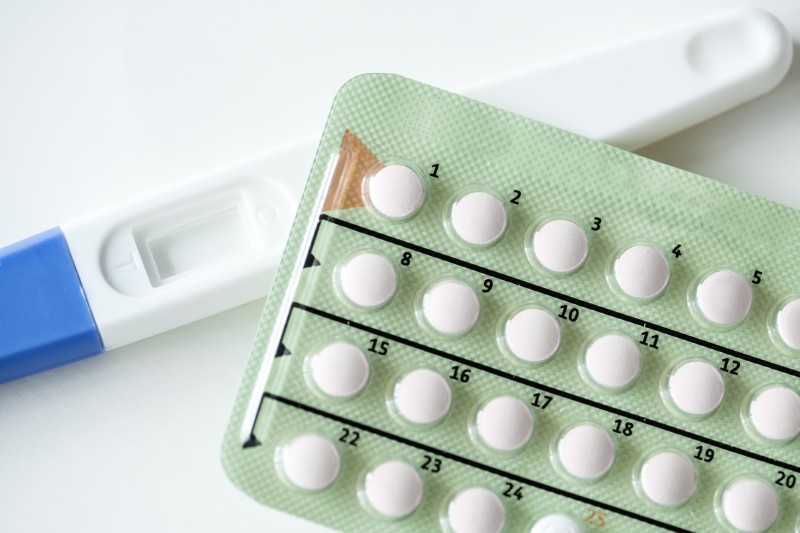Every month, the uterus lining is shed in a woman’s body if pregnancy does not occur. This is called menstruation, or periods when vaginal bleeding occurs as the lining is shed. It lasts 3-8 days and occurs roughly every 28 days. Periods can be unpleasant as you experience cramps, bloating, headaches, and moodiness.
What are irregular periods?
Regular menstrual cycles can range from 21 days to 35 days. The average cycle length is 29 days. Examples of irregular periods are:
- Periods that occur less than 21 days or greater than 35 days apart
- Missing three or more periods in a row
- Flow that is much heavier or lighter than normal
- Periods that last longer than seven days
- The time length between cycles differs by more than nine days. For instance, one cycle is 28 days, the next is 37 days, and the next 29 days
- Periods accompanied by severe pain, cramping, vomiting or nausea
- Bleeding or spotting occurs between periods, after menopause, or after sexual intercourse
- Wetting one or more tampons or sanitary pads in an hour
Common causes of irregular periods
Many factors can cause irregular periods, including variations in hormone levels, stress, certain health conditions, and medications.
Hormonal imbalances
Changes in estrogen and progesterone hormones can disregulate menstrual cycles. Polycystic ovary syndrome (PCOS) and thyroid disorders usually lead to hormonal imbalances. In PCOS, your ovaries make large amounts of androgens, a type of hormone which prevents or delays ovulation, causing irregular periods. Also, hypothyroidism (underactive thyroid), hyperthyroidism (overactive thyroid) and other thyroid disorders affect your hormones, causing irregular periods.
Lifestyle factors
The following lifestyle factors can cause irregular periods:
- Stress: It can affect the hypothalamus – a part of the brain that regulates the menstrual cycle, leading to irregular periods.
- Weight changes: Prominent weight loss or gain can affect hormone levels and disregulate periods. Anorexia and bulimia (eating disorders) can also be the cause.
- Exercise: Intense physical activity, especially with an inadequate diet, can lead to menstrual irregularities.
Medical conditions
The following medical conditions can cause irregular bleeding patterns:
- Uterine fibroids: Noncancerous developments within the walls of the uterus
- Endometriosis: A painful disease where tissue similar to the tissue that lines a woman’s uterus insides grows outside it
- Pelvic Inflammatory Disease (PID): A bacterial infection that impacts the female reproductive system, typically caused by an untreated sexually transmitted infection (STI)
Symptoms of irregular periods
All women experience the disorder differently. But in general, any menstrual experience outside of their monthly norms could be considered irregular. However, a set of common symptoms may help you determine whether you are affected by irregular periods or not:
Changes in cycle length and flow
The timing of menstrual cycles is inconsistent, and the length between periods may vary. Menses can last less than 21 days or more than 35 days.
Heavy bleeding or spotting

Unusually heavy flow, spotting between periods, or erratic bleeding patterns indicate hormonal imbalances or other underlying issues.
Abdominal pain or cramping
Intense menstrual pain can be a symptom of irregular periods, as it often is associated with hormonal imbalances. Also, painful cramps, usually caused by imbalances in hormone levels, lead to more muscular contractions in the uterus.
Fatigue and mood swings
Fatigue and mood swings can be the symptoms of irregular periods, which can occur due to:
- Premenstrual syndrome (PMS): A symptom group that can include mood swings, fatigue, irritability, and breast tenderness. Hormonal changes around menstruation cause PMS
- Hormonal imbalances: Occurring due to thyroid conditions, polycystic ovary syndrome (PCOS), or endometriosis
Management strategies
Managing irregular periods largely depends on the underlying cause.
Hormonal birth control

Irregular or heavy bleeding may be handled with hormonal birth control. They also regulate your cycle and make it more predictable. These can be hormonal birth control pills that consist of progestin-only birth control or estrogen and progestin. Both are used in forms like pills, an injection, a vaginal ring, or an IUD (intrauterine device – a form of birth control that a healthcare provider inserts into your uterus). However, hormonal birth control can cause side effects, including headaches, nausea, breast tenderness, and mood swings.
Medications
Drug therapies are initially prescribed for an abnormal menstrual cycle to attempt to rectify it. They are often the first treatment for irregular periods. In cases where medication options are ineffective in curing the disease, the provider may advise the patient to undergo surgery.
When should you seek professional guidance?
Contact your doctor if you have irregular periods or any of the following symptoms:
- Severe pain (cramping) during or between your periods
- Unusually heavy bleeding that soaks through a sanitary pad or tampon every hour for two to three hours or passing large clots (larger than a quarter)
- Foul-smelling vaginal discharge
- A period that lasts longer than seven days
- Vaginal bleeding between periods or after you have gone through menopause
- Periods that become very irregular after you have had regular menstrual cycles
- Nausea or vomiting when you are on period
- Symptoms of toxic shock syndrome (TSS), like fever, vomiting, diarrhea, fainting or dizziness
Irregular periods are common and have various causes, as mentioned above. Understand the potential implications and seek an appropriate treatment plan to maintain reproductive health and well-being. Regularly monitor and openly communicate with the doctor to effectively address menstrual irregularities.
Key Takeaways
- A woman’s periods are irregular if the gap between them is less than 21 days or more than 35 days.
- Common causes include hormonal imbalances, lifestyle factors, and medical conditions.
- Symptoms include changes in flow, spotting, cramping and mood swings.
- Management strategies include hormonal birth control to regulate your cycle and medications.
- Consult a doctor if you experience severe cramps, unusually heavy bleeding, vomiting, dizziness and fever.
Stay tuned to the Activ Living Community. Keep up to date with the latest health tips and trends through expert videos, podcasts, articles, and much more on nutrition, fitness, mindfulness, and lifestyle conditions like Asthma, Blood Pressure, Cholesterol, and Diabetes. Activ Living ke saath sahi sehat ki shuruat ABHI karo.
You may also be interested in the following blogs:
- 3 Effective Exercises During Periods: What You Need To Know
- Lifestyle Changes To Help With Impact Of Diabetes And Periods
Popular Searches
How to lower blood pressure | Fruits good for liver | Unhealthy foods | Ragi Benefits | Basal Metabolic Rate | Acupressure points for High Blood Pressure | Ayurvedic medicine for blood pressure | How to control cholesterol at home | Homeopathy for Asthma | Biological Age | Home remedies for TB | Natural beta blockers | Negative effects of internet | Types of walking | Blood pressure calculator | Blood sugar calculator | BMI Calculator





 1800-270-7000
1800-270-7000










